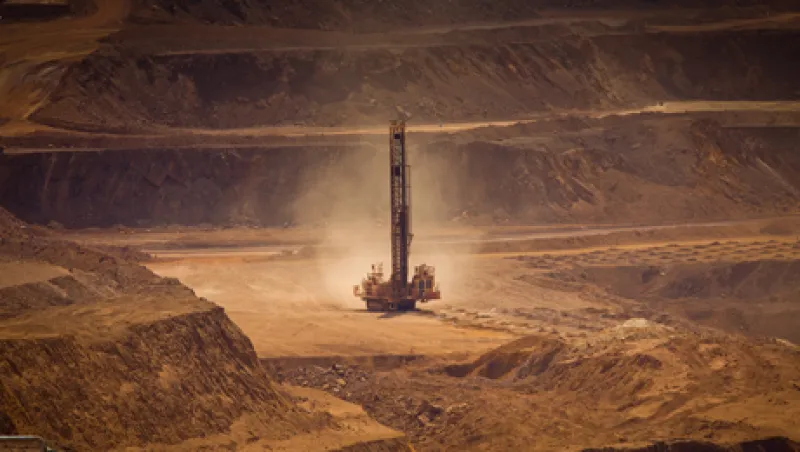AUSTRALIAN HEDGE FUNDS HAVE LIVED LARGE FOR a decade. Thanks to Chinese demand for minerals, their country’s No. 1 export, they’ve gladly ridden the commodity boom. But a recent slowdown in China and elsewhere has stopped them cold. Some Aussie hedge fund managers see an upside in today’s choppy markets, however. Philip King, CIO of Regal Funds Management, is now avoiding Australian mining stocks except to short them selectively. “We actually think there will be more opportunities for a long-short manager such as Regal in a mining down cycle than in a mining boom,” says King, whose Sydney-based firm manages six funds with combined assets of $1.2 billion.
“We are seeing a lot of the slowdown in growth in China factored in already,” King notes. “Some Australian stocks are the cheapest they have ever been.” The country’s top miner, BHP Billiton, is trading at a price-earnings ratio of 7, its lowest for almost a decade.
Regal is looking to short Australian mining companies that need funding for their projects. As commodity prices rose, King explains, the best performers were explorers and high-cost producers. But if the mining cycle is really at its end, those stocks should fall in the next few years, he says. “The companies that will outperform will be the low-cost producers and the companies actually in production.”
Australia’s hedge fund industry, whose 85-odd firms managed total assets of $33 billion in 2011, is the second-largest pool of alternative assets in Asia after Hong Kong. Between 2004 and 2007 the industry’s assets tripled, according to the Australian Trade Commission, mirroring growth in other Asian regions. After falling almost 6 percent in 2011, the AsiaHedge Australian Long/Short Equity Index was up 3.18 percent on the year as of mid-May. “Some Australian hedge funds have made money in recent months by making the right calls by shorting the right equities,” says Daniel Liptak, head of alternatives at Zenith Investment Partners, a Melbourne-based research firm. “Overall, Regal has made the right calls.”
The past few months have seen a reversal of 2011, when mining and mining services flourished, and anything consumer-related was in recession, says Regal’s King, 44, whose brother Andrew King founded the firm. “The market is telling us that perhaps the mining boom is over,” he contends.
Since joining Regal in 2005, King has beaten the market with both fundamental and quantitative strategies. The former takes a long-term value approach through three substrategies: market neutral, absolute return and active extension, which uses profits from shorting to take more long positions. The quantitative strategy zeroes in on event-driven bets and longer-term opportunities for generating alpha. “We focus on stock-specific risk, so we try and make money within sectors, as opposed to having a big macro bet on China or the financial restructuring in Europe,” King says.
Market neutral is Regal’s biggest fundamental substrategy, with some $920 million, more than half of that in the flagship Amazon Market Neutral Fund. The fund, which gained 12 percent in 2011, fell 1 percent year-to-date as of June 15, on par with the S&P/ASX 200 Index. It has posted a 20 percent annualized return since its September 2005 launch.
About 10 percent of Regal’s assets are abroad, mostly in developed Asian markets such as Hong Kong, Japan, Singapore and South Korea. “The sectors where we have done well in Asia in the past year or two include the shipping, mining, finance and consumer-related sectors,” says King, a former Macquarie Bank equity analyst who joined Regal after six years in London at De Putron Fund Management.
Regal, whose client base is mostly Australian and European institutions, began marketing to retail investors in 2010 after selling a 30 percent stake to Ascalon Capital Managers, the private equity arm of Westpac Banking Corp., one of Australia’s largest banks. High-net-worth Australians are using long-short and market-neutral strategies to reduce their equity market risk, Zenith’s Liptak explains. “We believe that Australian investors will continue to invest in good hedge funds, especially at a time when bonds look fully priced and global deleveraging stymies equity growth,” he says. • •






